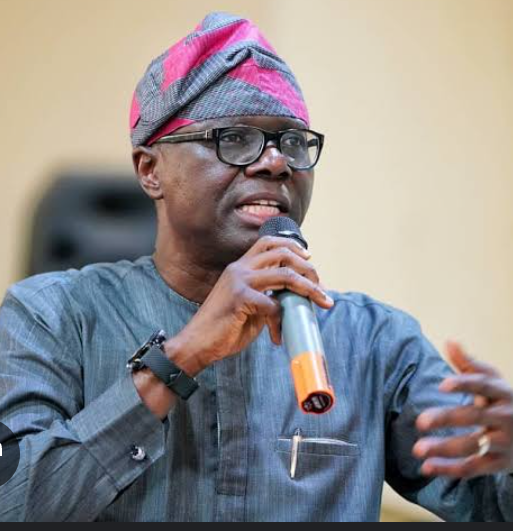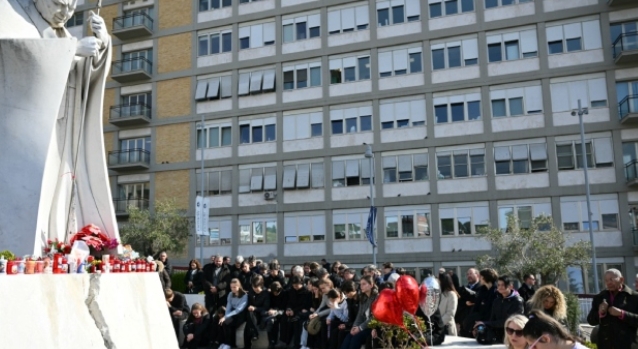News
Sanwo-Olu’s Policy On Housing Will Avert Building Collapse In Lagos – Aide

By Kayode Sanni-Arewa
As part of measures aimed at curbing the reoccurring cases of building collapses in Lagos, Governor Babajide Sanwo-Olu has given a 3-month window assessment in the early part of the 1st Quarter of his Administration to the public in order to ensure integrity test for building as well as for approval in the state.
Senior Special Assistant to Lagos State Governor on Housing, Hon. Abdul-Akeem Ayodeji Amodu, while speaking on the sideline of the inaugural lecture ceremony of the 26th President of the Nigerian Institution of Estate Surveyors and Valuers (NIESV) held at the State House in Abuja stated that the 3-month window seek to find out whether the Properties already built are under pipeline, Sewage tanks and Tracks, or on the drainage area, or make the building are not even aligning with the building
codes, or not aligning with the master plan of the state.

Amodu explained that Governor Sanwo-Olu has however given the opportunity to the public to apply for their building plans approval and documentation, to make sure that their properties are duly titled adding that many estates in Lagos have no building Plan approval.
“So what Mr. Governor has done, in essence, is for individual and property owners or Groups should come up with their
documents, come up with your As-Built Plan.
The Commissioner of Physical Planning in Lagos State in the recent past has come up
with this idea through the policies of advice to the government . The Government & Ministries were shocked to discover that there are so many estates, so many homes in Lagos that don’t have
building Plan approval.
” Some don’t even have Architectural building plans, they don’t follow the building code,
So what we’ve done as Government is to allow people to engage Professionals like Architects, Town Planners, Estate Surveyors & Valuers, Engineers to assist them to come up with a document, even if you have built your House,
get an architect, let them design for you a proper As Built building plan. Then you come up to the
state to present it, because the Truth is that Governor Sanwo-Olu’s government is a people’s government. We don’t want to
come and start breaking homes or Bringing Buildings Down without Advocacy. The Government does not want to start making people homeless, because we need these
people.
“They’ll do the normal integrity
test on your building to ensure that the property is actually standing well on a solid
structure, so that you don’t, jave a defective building in future, after getting that approval, the building collapses”
Meanwhile, Amodu noted that in a bid to curb housing deficit in Nigeria, Lagos State has begun the development of housing projects in all the 20 local governments and 37 Local Council Development Areas (LCDAs) of the state both on Public-Private partnerships (PPP) Joint Venture (JV) and Government Allocated resources Model.
He explained that the governor recently commissioned about 360 housing units of one, two bedrooms, and three bedrooms in different clusters which was hitherto abandoned in the state adding that the governor also commissioned 144 units of one, two and three
bedrooms as well as another 60 units of three-bedroom blocks of apartments in
Amuwo Odofin local government area 3 weeks ago.
We also still have on-going Project embarked upon by The Ministry of Housing,
LSDPC, LBIC and a host of other Government Real Estate Partnerships with the Government to be Commissioned soon by Mr Sellable. Governor Babajide Sanwo-Olu’s to realise his Administration s THEME+ Agenda for the State.
Amodu further assured that development will be even in the state as affordable housing scheme has also been made available for the masses to meet the demand of housing deficit in the state.
“We
are still making sure that we develop homes for the masses, we have a scheme
called the LAGSHOMS SCHEME which is A Rent- To – Own which is like pay-as-you-earn scheme, which is been Supported through the Lagos Mortgage Board for the
Lagoshoms where you pay 5% of the total cost and value of
that property.
“And every other amount of that property will be spread around for you to lpay within the
space of about 10 years. So it’s a way of bringing development to the people and residents of Lagos, by giving comfort to the less
privileged, to the working class, and to the Non-Structured Sector of the state.” He added.
Speaking on the inaugural lecture and Investiture Ceremony of the 26th President of The Nigerian Institution of Estate Surveyors and Valuers which was well attended by major stakeholders in Government,Legislature, and Captain of Industry in the built Sector and Environment, Amodu emphasized the symbiotic relationship between NIESV and Lagos State Government as cordial adding that governor Sanwo-olu is poised at ensuring professionals must take charge and full responsibility in a Professional manner of Real Estate Activities & events in the built industry as well as he also encourage and Admonished other Professionals by saying it is a Clarion Call to all other professional Bodies to embrace Professionalism so as to Deliver the Good for the Benefit of Lagos amd Nigeria’s Development as Whole.
News
Court orders reinstatement of fired Lagos Assembly Clerk, Onafeko

By Kayode Sanni-Arewa
The National Industrial Court sitting in Lagos has ordered the reinstatement of the fired Clerk of the Lagos State House of Assembly, Olalekan Onafeko.
The order follows an ex parte application to the Court made by Onafeko through his counsel, Yusuf Nurudeen, in a case he filed against Lagos State Government, Lagos State Civil Service Commission, Lagos State House of Assembly Service Commission, The Speaker, Lagos State House of Assembly, Attorney-General of Lagos State and Mr. Ottun Babatunde.
Onafeko was the Clerk of the House before January 13 when Hon. Mudashiru Ajayi Obasa was removed as Speaker, with the then Deputy Speaker, Mojisola Lasbat Meranda elected as the new Speaker.
Obasa’s removal, a decision that sparked controversy within the Lagos House and the ruling All Progressives Congress (APC), also led to Onafeko losing his position, with Babatunde Ottun appointed as his acting replacement.
The claimant in the suit marked: NICN/LA/23/2025 sought for an interim injunction restraining the six defendants from parading any individual including Babatunde as the clerk pending the hearing of the motion on notice for Interlocutory injunction already filed in the suit.
Granting the application, Justice M. N. Esowe in an ex parte order directed that Babatunde should cease to parade himself as Clerk
Esowe ordered that that what was in place in terms of the person in the saddle of the Clerk Office prior to the crisis rocking the House of Assembly should now prevail.
“That both parties shall maintain the peace and status quo ante bellum until the motion on notice is heard and determined,” Esowe ordered.
The judge slated the hearing of the motion on notice for March 3, 2024.
News
Worldwide Prayers For ‘Critically’ Sick Pope Francis

By Kayode Sanni-Arewa
Pope Francis spent his tenth day in hospital Sunday as Catholics around the world prayed for his recovery, the day after the Vatican warned the 88-year-old’s condition was “critical”.
The Argentine pontiff, who is being treated for double pneumonia, suffered a prolonged asthma-style attack on Saturday and required blood transfusions for a low platelet count.
On Sunday morning the Holy See said “the night passed peacefully, the pope rested” — indicating no repeat of the crisis the previous day, Vatican sources said.
But Francis, who had part of a lung removed when he was a young man, is still receiving oxygen through a tube in his nostrils in the papal suite at Rome’s Gemelli hospital.
In a message published Sunday but written in the past few days, the Jesuit thanked hospital staff and said he had confidence in his treatment.
“I am confidently continuing my hospitalisation at the Gemelli Hospital, carrying on with the necessary treatment — and rest is also part of the therapy!” he said.
“I ask you to pray for me,” he concluded in the text published in lieu of his weekly Sunday Angelus, which he normally delivers from a window overlooking St Peter’s Square.
People pray at the feet of a statue of John Paul II outside the Gemelli hospital where Pope Francis is hospitalized for pneumonia in Rome on February 23, 2025. (Photo by Alberto PIZZOLI / AFP)
Francis, who has been head of the Catholic Church since 2013, was admitted on February 14 initially with bronchitis, but his condition has deteriorated since then.
In its evening update Saturday, the Vatican warned his “condition continues to be critical, therefore the pope is not out of danger”.
It said Francis was alert and “spent the day in an armchair even if he was suffering more than” the day before.
It said he had a “prolonged asthmatic respiratory crisis, which also required the application of high-flow oxygen”.
Daily blood tests also “showed thrombocytopenia, associated with anaemia, which required the administration of blood transfusions”, it added.
Thrombocytopenia is a condition that occurs when the platelet count in the blood is too low, which can cause trouble stopping bleeding.
Blood or platelet transfusions, delivered via an intravenous (IV) line, are given to people who are either bleeding heavily or at very high risk of bleeding, according to the US National Institutes of Health (NIH).
“The pope gets worse,” headlined Italy’s Corriere della Sera newspaper on Sunday, while La Repubblica described it as the “darkest day” at the Vatican.
Well-wishers have been leaving candles outside the Gemelli since Francis was admitted, and a special mass was planned for Sunday evening in Rome.
“I am praying for him, for his health, because he is a special person for all of us,” Italian teacher Ilde Zito told AFP at the hospital.
Prayers and messages of solidarity also came in from among the almost 1.4 billion Catholics across the globe, alongside other Christians and world leaders.
In the cathedral of Buenos Aires, where Francis was once archbishop, TV screens at the entrance showed images of then Jorge Bergoglio’s good works, and the priest held a special mass.
“He is strong, he has always been strong, but there is nature. I know he is very ill and old. I hope he recovers, but it makes me sad,” Hector Armando Diaz, 76, a retired sales clerk, told AFP there.
Across the world in Iraq’s northern city of Mosul, a former bastion of the Islamic State group that Francis visited in 2021, at least a dozen churches also held prayers for him.
“This is the least we can do to express our solidarity, love, and appreciation for this great person,” said university professor Adnan Hadi.
Mexico’s president, Claudia Sheinbaum, offered her hopes on social media for a speedy recovery for the “great humanist” Francis, the first pope from the Americas.
Francis’s continued hospitalisation has sparked huge concern about his health but also speculation about whether he might step down.
He has always left the door open to following his predecessor, Benedict XVI, who in 2013 became the first pope since the Middle Ages to resign.
But he has repeatedly said it was not the time.

The pope maintains a punishing work schedule. He carried out a mammoth 12-day tour to the Asia-Pacific in September, but has suffered increasing health issues.
He underwent colon surgery in 2021 and an operation for a hernia two years later. He is overweight and has constant hip and knee pain, which forces him to use a wheelchair.
AFP
News
Liverpool thrash Man City, Go 11 Points Clear

By Kayode Sanni-Arewa
Liverpool took a big step to winning the Premier League, crushing an uninspiring Manchester City in a showdown on Sunday.
Mohamed Salah stole the show, scoring one and providing an assist to send Liverpool 11 points clear at the top of the table although they have played a game more.
The Egyptian opened the scoring with his 30th goal of the season before setting up Dominik Szoboszlai to double the lead before half-time.
Just days after exiting the Champions League to Real Madrid, this was another sobering defeat for the dethroned English champions, who are now 20 points adrift of the leaders.
So often during Pep Guardiola’s glorious reign, Liverpool have come up just short in English football’s great rivalry of recent years.
However, their time to match Manchester United’s record of 20 English top-flight titles now appears just months away in Arne Slot’s first season in charge.
Arsenal’s shock 1-0 home defeat to West Ham on Saturday had eased the pressure on Liverpool, that had built after dropping points in two of their last three games at Everton and Aston Villa.
A trip to the Etihad has for so long been the stiffest test of all, but City’s defensive frailties were easily exposed and they also badly missed the presence of the injured Erling Haaland in attack.
Liverpool, by contrast, had their talisman fit and firing as Salah took his staggering tally this season to 25 goals and 16 assists in 27 Premier League appearances.
However, their time to match Manchester United’s record of 20 English top-flight titles now appears just months away in Arne Slot’s first season in charge.
Arsenal’s shock 1-0 home defeat to West Ham on Saturday had eased the pressure on Liverpool, that had built after dropping points in two of their last three games at Everton and Aston Villa.
A trip to the Etihad has for so long been the stiffest test of all, but City’s defensive frailties were easily exposed and they also badly missed the presence of the injured Erling Haaland in attack.
Liverpool, by contrast, had their talisman fit and firing as Salah took his staggering tally this season to 25 goals and 16 assists in 27 Premier League appearances.
The Egyptian fired the visitors in front on 14 minutes thanks to a brilliantly executed set-piece routine.
Alexis Mac Allister’s corner was flicked by Szoboszlai into Salah’s path and his shot deflected off Nathan Ake past the despairing dive of Ederson.
At the other end, City’s own Egyptian international showed his ability to finish, but Omar Marmoush had strayed offside before being played in by Phil Foden.
City winger Jeremy Doku was skipping past Trent Alexander-Arnold at will, yet the Belgian consistently failed to deliver a telling cross or shot.
Salah was not so forgiving as he raced onto a long ball over the top and teed up Szoboszlai to wrong-foot Ederson.
The final outcome could have been much more humiliating for City had Liverpool had been as accurate on the counter-attack after the break.
Curtis Jones had a third goal ruled out by a VAR review for offside after Szoboszlai just failed to time his run through the heart of the City defence.
Ederson was forced into a stunning save from Luis Diaz and only a brilliant last-ditch tackle from Abdukodir Khusanov denied Szoboszlai a second.
Marmoush scored a hat-trick in last weekend’s 4-0 win over Newcastle and remained a lively threat as he flashed another effort across the front of Alisson Becker’s goal.
But City lacked the end product to make nearly 70 percent possession count.
Despite an eighth league defeat of the season, Guardiola’s men remain in fourth and will be confident of securing their place in the Champions League next season with a top-five finish likely to be enough.
However, after an unprecedented run of four consecutive titles, City look like yesterday’s team with Liverpool now champions in waiting.
-

 Metro20 hours ago
Metro20 hours agoInsecurity! Gunmen invade church, slash pastor’s 2 fingers
-

 Metro20 hours ago
Metro20 hours agoFire engulfs MTN office in Oyo
-

 Foreign20 hours ago
Foreign20 hours agoPentagon set to sack 5400 staff as attack hits Trump’s downsizing plan
-

 Metro20 hours ago
Metro20 hours agoDanger averted as police rescued six kids from collapsed building
-

 Sports21 hours ago
Sports21 hours agoEnd of road for Arsenal, may not win any shield this season – Report
-

 Sports20 hours ago
Sports20 hours agoAtalanta coach makes a U-turn says he never knew his comment could offend Lookman
-

 News6 hours ago
News6 hours agoNDPC Finally Secures NJI’s Support for Data Privacy Right in Nigeria
-

 News20 hours ago
News20 hours agoNSCDC, Tantita intensify joint efforts to combat oil theft in Niger Delta







